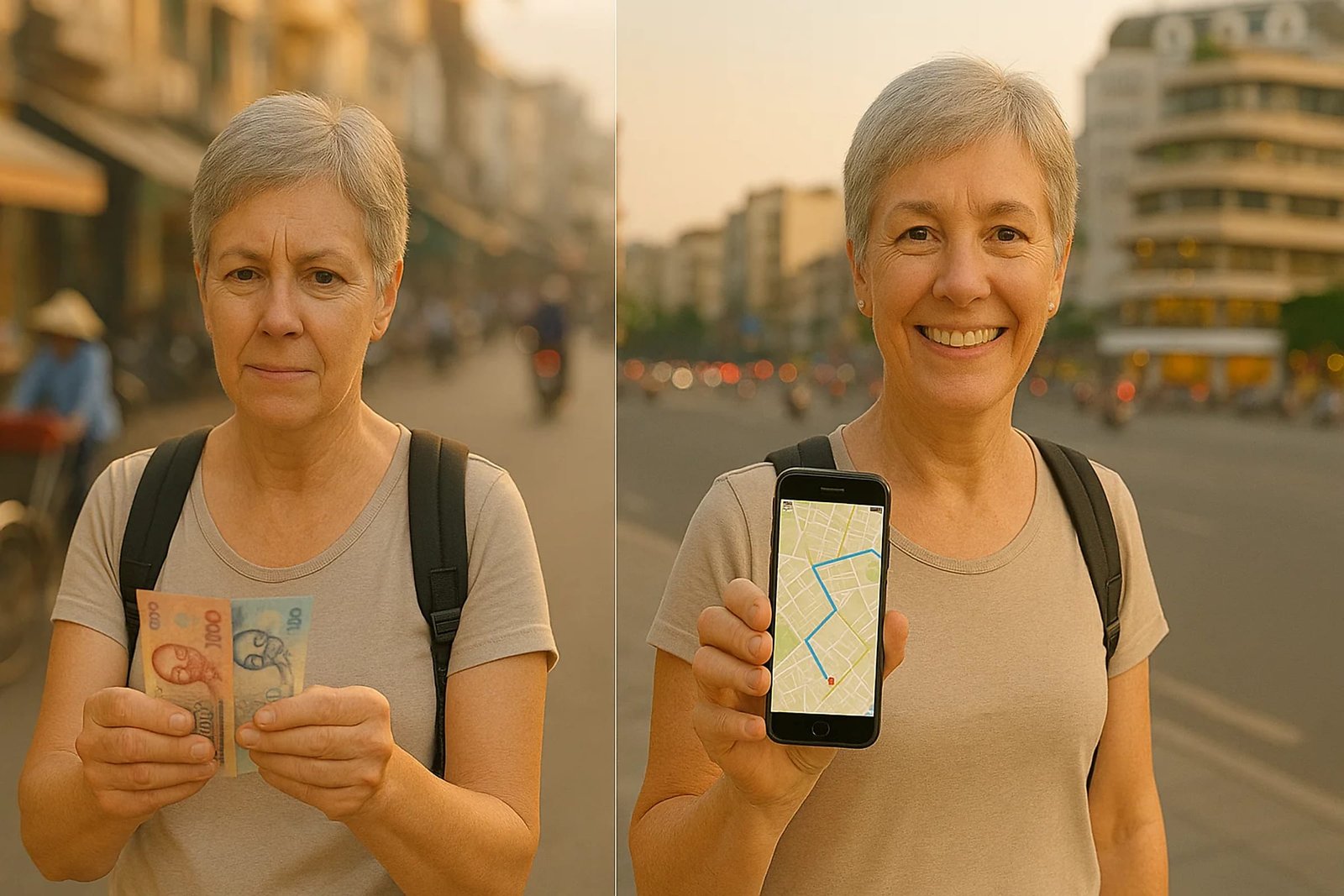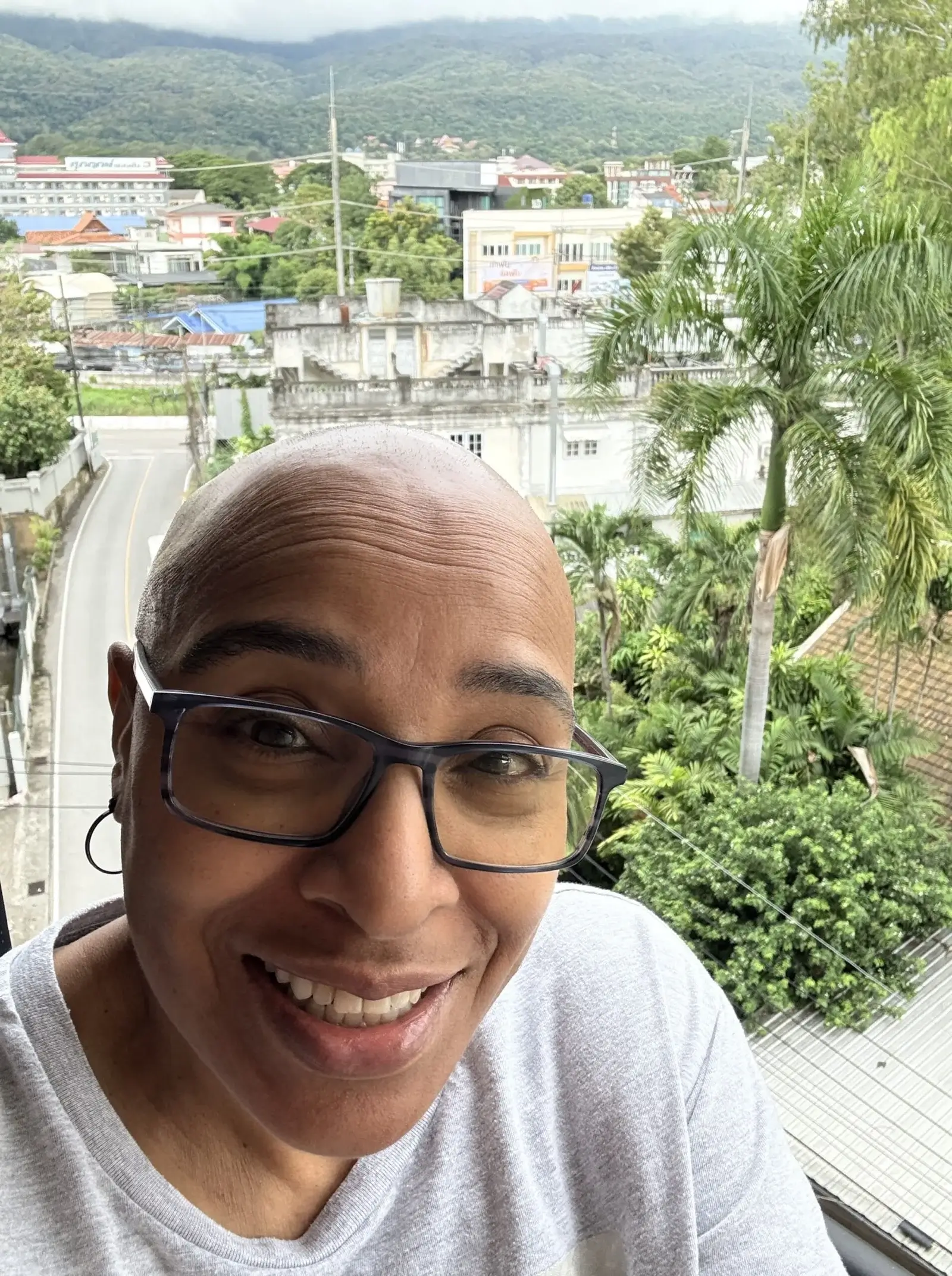Did you know that over 25% of adults aged 65 and older experience mobility challenges? That’s millions of people who still dream of traveling but face extra hurdles. I understand firsthand—watching my own grandparents struggle with travel sparked my passion for making vacations accessible, enjoyable, and stress-free for everyone.
Travel is more than just a trip. It’s a chance to explore new places, connect with different cultures, and create lifelong memories. Mobility issues shouldn’t hold anyone back from experiencing the joy of travel. With the right planning and a few smart adjustments, vacations for seniors can still be comfortable, fun, and hassle-free.
If you’re a senior traveler or helping a loved one plan an accessible getaway, you’re in the right place. In this guide, I’ll share practical tips and expert advice to help make travel safe, enjoyable, and completely doable—no matter your mobility level. Let’s make those travel dreams a reality!
Travel more, worry less
Selecting Accessible Destinations
The first step in planning any trip is picking the right spot. For seniors with mobility issues, this means thinking about a few extra things. It’s not just about seeing cool sights; it’s about making sure you can actually get to those cool sights without a ton of stress.
1. Cruises: The Floating Vacation
Cruises are awesome because they bring adventure and relaxation together. Everything you need is right there on the ship, and they’re usually really good at making things easy for older adults.
Cruises are great cause;
- Easy to Get Around: Ships have elevators and paths that are easy to roll a wheelchair on.
- Medical Help: Many cruises have doctors and nurses on board, which can be a big relief if you’re worried about health stuff.
- See Lots of Places: You can visit different islands or cities without having to pack and unpack a million times.
I remember talking to a lady on a cruise once who used a scooter. She told me it was the first vacation she’d taken in years where she felt totally relaxed because everything was so accessible. Plus, she got to see five different Caribbean islands!
2. National Parks with Accessible Trails
Love nature? National Parks are working hard to make trails and facilities that everyone can use.
Parks That Do It Right:
- Grand Canyon: Stunning views and accessible trails.
- Yellowstone: Geysers, wildlife, and paths for wheelchairs.
Tips:
- Rent mobility aids: Scooters and wheelchairs are often available to rent.
- Call ahead: Check with the park about the latest accessible trails and tours.

3. Cities with Excellent Public Transport
Some cities are just easier to get around than others, especially if you use a wheelchair or walker.
Top Cities for Easy Travel:
- Vienna: Great public transportation.
- Singapore: Super clean and efficient.
- Tokyo: Known for being on time and accessible.
- Melbourne, Australia: Accessible public transportation, well-maintained sidewalks, and wheelchair-friendly attractions.
These cities have buses and trains with low floors and elevators in the stations. Plus, there are tons of cool things to see, like museums and theaters, that are easy to get to.
I visited Vienna a few years ago and was amazed at how easy it was to use the trams. I saw lots of seniors zipping around town without any trouble at all.
Mobility Issues: Understanding the Meaning and Types
Let’s break down what “mobility issues” really means. It’s a broad term that covers lots of different things that can make it harder to move around. Knowing the details can really help in planning.
Mobility issues, or mobility impairment, simply means that someone has trouble moving their body in a typical way. This could be due to:
- Muscle Weakness: Muscles aren’t as strong as they used to be.
- Joint Problems: Stiff or painful joints make movement difficult.
- Balance Issues: Feeling unsteady can make walking risky.
- Chronic Pain: Ongoing pain that limits activity.
- Neurological Conditions: Conditions like Parkinson’s or multiple sclerosis.
There are many types of physical impairments that can affect mobility. Here are a few common ones:
- Arthritis: Causes pain and swelling in the joints.
- Osteoporosis: Weakens bones, making them more likely to break.
- Stroke: Can cause paralysis or weakness on one side of the body.
- Multiple Sclerosis (MS): Affects the brain and spinal cord, leading to muscle weakness and balance problems.
- Parkinson’s Disease: Affects movement, causing stiffness and tremors.
Understanding the specific type of mobility issue is key. For example, if someone has arthritis, planning shorter walking distances and frequent rest stops is smart. If balance is a concern, using a walking stick or traveling with a companion can help.
My uncle has Parkinson’s, and he loves to travel. But he needs a lot of support. We always make sure to book accommodations with grab bars in the bathroom and plan our days with plenty of breaks.
Best Day of the Week to Book a Flight
Here’s a little secret: the day you book your flight can actually affect the price!
Airlines change their prices based on demand. Traditionally, Tuesdays and Wednesdays have been the best days to snag cheaper flights because fewer people are booking then.
How to Find Deals
- Be Flexible: If you can adjust your travel dates by a day or two, you might find a better deal.
- Use Price Alerts: Set up alerts on websites like Google Flights, Trip, or Expedia to track prices and get notified when they drop.
- Consider Off-Season Travel: Traveling during the less popular times of the year can save you a lot of money.
I once saved over $200 on a flight to Florida just by shifting my travel day from Friday to Wednesday! It’s worth experimenting a little.
Budget-Friendly Travel Tips
Traveling doesn’t have to break the bank. There are plenty of ways to save money and still have an amazing experience.
Accommodation Savings
- Look for Discounts: Many hotels offer senior discounts. Always ask the hotel directly!
- Consider a Vacation Rental: Places like Airbnb, Trip, and Expedia can sometimes be cheaper than hotels, especially if you’re staying for a longer time.
- Travel in the Off-Season: Prices are usually lower when it’s not peak tourist season.
Transportation Savings
- Use Public Transport: In cities with good public transportation, it’s often cheaper than taxis or rental cars.
- Book in Advance: Train and bus tickets are often cheaper when you buy them early.
- Walk When Possible: If you can walk short distances, do it! It’s free and a great way to see the sights.
Activity Savings
- Free Activities: Look for free things to do, like visiting parks, museums on free days, or attending local events.
- Senior Discounts: Many attractions offer discounts for seniors. Always ask!
- Pack Snacks: Eating out for every meal can get expensive. Pack snacks and drinks to save money.
My grandma is a pro at finding deals. She always calls hotels directly to ask for the best rate, and she’s not afraid to haggle a little. She once got a free upgrade just by being friendly and asking nicely!
Safety Tips for Senior Travelers
Safety is super important, especially when you have mobility issues. A little planning can go a long way in preventing problems.
Before You Go
- Talk to Your Doctor: Get a check-up and make sure you’re cleared for travel.
- Medications: Bring enough medication for your entire trip, plus a little extra in case of delays. Keep them in their original containers and carry them in your carry-on bag.
- Travel Insurance: Make sure you have travel insurance that covers medical emergencies.
While You’re Traveling
- Stay Aware: Pay attention to your surroundings and avoid walking alone at night.
- Keep in Touch: Let someone at home know your itinerary and check in with them regularly.
- Emergency Contacts: Carry a list of emergency contacts with you.
- Pace Yourself: Don’t try to do too much in one day. Rest when you need to.
Mobility-Specific Tips
- Assistive Devices: Make sure your wheelchair, walker, or scooter is in good working condition before you leave. Bring spare parts if possible.
- Accessible Accommodation: Book hotels with accessible rooms and bathrooms. Confirm the details before you arrive.
- Transportation: Arrange for accessible transportation in advance, such as wheelchair-accessible taxis or buses.
I always tell people to think about what could go wrong and plan for it. It sounds negative, but it’s actually really empowering. Knowing you’re prepared makes everything less stressful.
Useful Resources for Senior Travelers
Here are some helpful websites and organizations that can make planning easier:
- AARP: Offers travel discounts, tips, and resources for seniors.
- The National Park Service: Provides information on accessible trails and facilities in national parks.
- Mobility International USA: Offers resources and support for travelers with disabilities.
- AccessibleGo: Lists accessible hotels, tours, and activities.
Conclusion__ Vacations for Seniors
Traveling with mobility issues might take a little extra planning, but it’s totally doable and incredibly rewarding. By choosing the right destinations, understanding your specific needs, and using the tips and resources I’ve shared, you can create amazing, stress-free vacations.
Remember, the goal is to enjoy yourself! Don’t be afraid to adjust your plans as needed and focus on making memories. And most importantly, listen to your body and take care of yourself.
Now, I’d love to hear from you! What are your favorite accessible travel destinations? Do you have any tips to share? Leave a comment below, and don’t forget to subscribe to our site for more travel resources for savvy seniors.
Turning Dreams into Destinations





